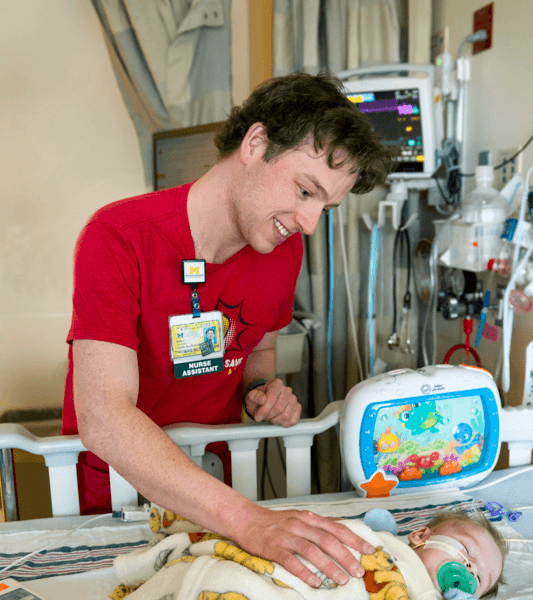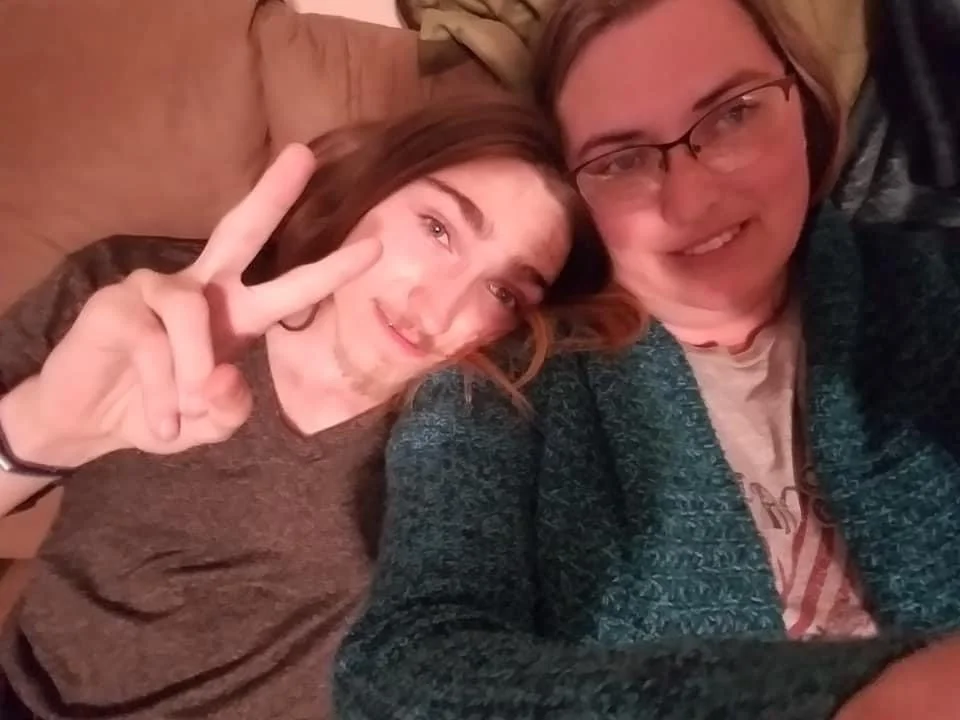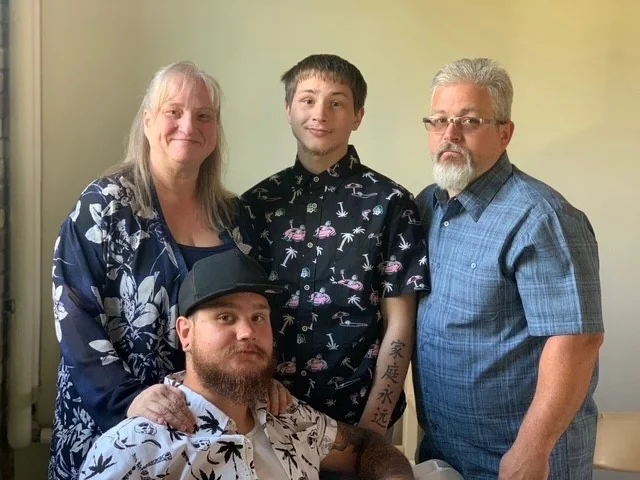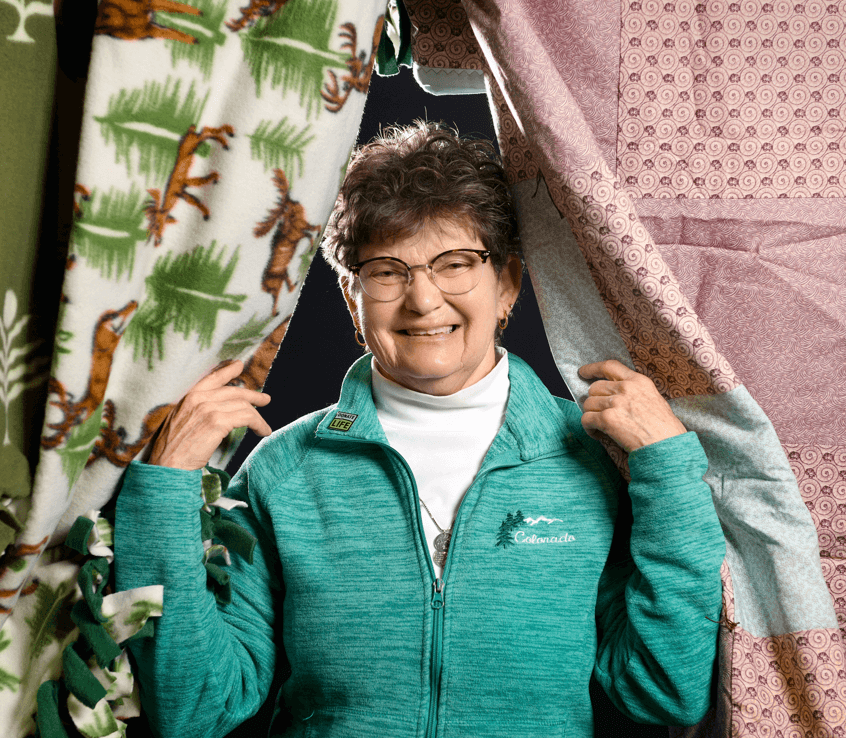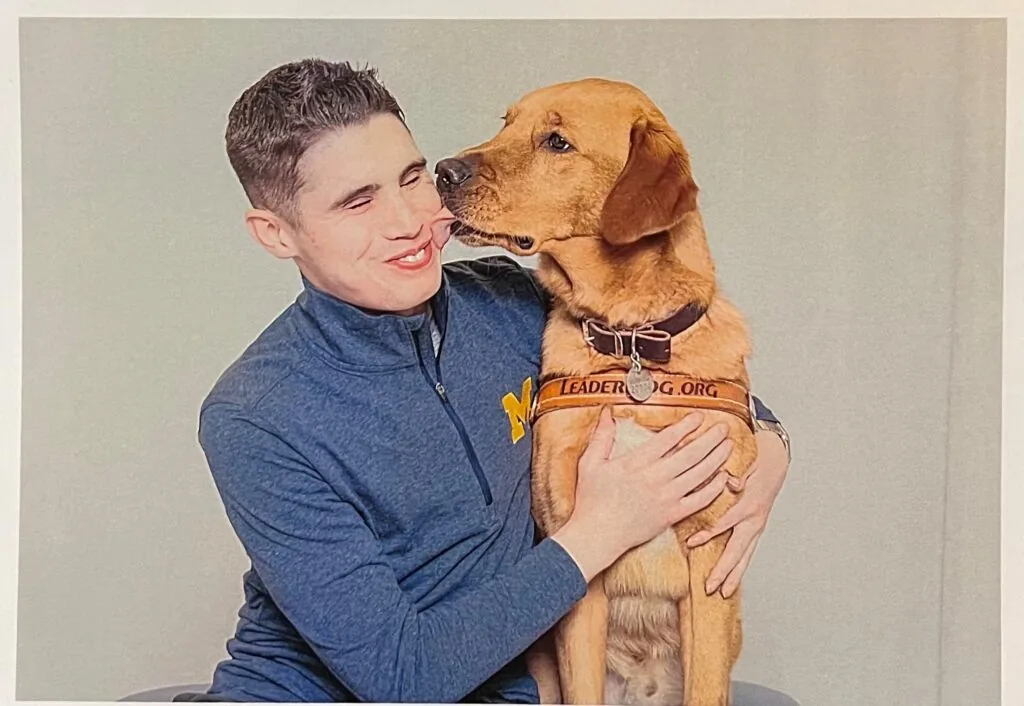BRAEDON’S STORY (by Eric Bishop) Born 2 weeks after his due date, Braedon was the biggest of our three children. Weighing in at a healthy 9 lbs, 9 oz, he was actually so well-developed that his lungs pumped during the birthing process causing him to inhale fluids, which landed him in the NICU for his very first day and a half.
But that was the last time Braedon saw the inside of a hospital for the next four years. From that point on, he was always at the 50th percentile for height and weight at each well-child visit. He got all his booster shots and hit each development landmark on time. And he was very excited about starting preschool this fall.
Then at the beginning of August, during a normal weekend trip to Grand Rapids to visit family, Braedon started complaining about tummy-aches and feeling tired. His temperature was normal, so our pediatrician suggested just keeping him hydrated while his system kicked this “little bug.”
By Sunday, he was very nauseous and lethargic and a yellow hue to his skin was noticeable. We took him to DeVos Children’s Hospital emergency room in Grand Rapids where they suspected hepatitis for his jaundiced appearance. The tests confirmed this suspicion but as we awaited results of the Hep. panel he was sent home to Farmington Hills to follow up with our pediatrician. For the next week, Braedon endured several pokes and prods as they sought more blood tests to figure out this ailment and track his liver enzyme levels.
He met with the head of the pediatric GI team (the Liver Hepatologist) at U of M, but despite all the needles and unfamiliar faces, Braedon was still in good spirits – laughing with the doctors and even giggling as they examined his stomach! (He’s extremely ticklish).
They sent him home with the hopes that his liver would jumpstart itself and begin filtering all of the toxins again, as some children have been known to do. Of course, more blood tests were ordered… But his liver never sparked back to life. This “virus” was not going down without a fight. In fact, we didn’t know it yet, but it had already wrecked havoc on his young four-year-old organ.
When his demeanor changed and his levels showed dangerous elevations, Braedon was admitted to the PICU at Mott Children’s Hospital at U of M, not even two weeks after the first sign of any symptoms in our otherwise perfectly healthy 4-year old son.
His enzyme levels had risen exponentially in such a short amount of time. I will never forget the distinct intensity behind the eyes of every professional that visited us that first day at the hospital to discuss Braedon’s case. My eyes scanned every facial feature, desperate to find non-verbal answers (to questions I was afraid to even ask).
Dr. Lopez sat us down on the second day. He told us that Braedon’s ammonia was increasing rapidly, causing his brain to swell. “He’s experiencing what we call: Acute Liver Failure,” he said. “We’re beginning the process to get Braedon a liver transplant.” Transplant? I had no experience with this word. I didn’t know anyone who had received a transplant, let alone what might be involved.
Could I donate part of my liver? How long does it take to get a liver? What will happen to his deteriorating body while we wait? What happens if we don’t find a match?
One by one, the doctors answered my questions. I was told if his levels continued to rise at their current rate, we had less than seven days to find a liver. Desperate for clarification, I asked, “If we don’t find one in seven days, will he suffer brain damage?” “No, if we don’t find one very soon,” Dr. Lopez corrected me solemnly, “Braedon will die.”
He was put on “The List.” We were told he’d be the first considered for any possible matches in Michigan, and likely the tri-state area which includes Indiana, Michigan, and Ohio. What we did not know, was that his levels were so high that they moved him up to first priority in the nation.
We prayed like we’ve never prayed before. Friends and family came to be with us. Emails, texts, and phone messages crippled our phone batteries. As I stepped out of the room to bring family up to date, Shelly took a moment and tried to steady herself and digest this information and consider the circumstances.
Shelly cried to herself and the nurse (Sue), who was checking Braedon’s vitals, asked if she was alright.
“I’ve been praying and praying for Braedon to get a new liver,” Shelly explained. “But I just realized that for that to happen, it means I’m praying for someone else to die.” “No honey,” Nurse Sue consoled her, “you can’t allow yourself to think like that. Just pray for a gift. That’s all you can do. Pray for a gift.”
The night was spent holding Braedon as he screamed out in agony every half hour as Encephalopathy set in (in its most basic definition – this means brain dysfunction caused by the rapidly failing liver). Shelly and I actually climbed into bed with him since his tiny limbs were too small for restraints and his bleed time was through the roof. Each time he flailed around resulted in trails of bruises along his arms and legs. Unaware of what he was doing, he would try anything to free himself from the IV tubes and monitoring cords.
He scratched, pinched, kicked, and bit at anyone nearby, including himself, if his own arms weren’t securely held by our hybrid wrestling hold / hug. At around 10 pm, the head pediatric liver transplant surgeon walked into our room.
“I think we found one” said Dr. Magee. He looked exhausted. Just 17 hours after Braedon had been added to the list, an offer was made. Dr. Magee had been running the numbers for several hours to evaluate whether or not this was, in fact, the perfect match. He told us that he had tentatively scheduled an O.R. for Braedon for the following morning.
Braedon received the gift of life on Saturday, August 22, 2009. Two days after being admitted to the hospital. The organ, although it was a split, began producing bile immediately. Less than 24 hours after surgery, his pink cheeks returned, replacing the yellow hue. The pathology performed on the failed liver came up inconclusive. We still have no idea, to this day, whether it was viral, genetic, or what might have caused this.
Today, however, he is here with us and recovering beautifully. He has demonstrated remarkable resiliency and we are thrilled at the progress. So thank you to all that have donated time and money to this event and this cause.
Thank you to friends and family that offer emotional, physical and financial support. And thank you to everyone that has a red heart sticker on your driver’s license that indicates that you are a donor. Donors save lives, and if we can help it, Braedon will never lose sight of the gift he has been given.
God Bless You All. Eric and Shelly Bishop
Farmington Hills, MI



